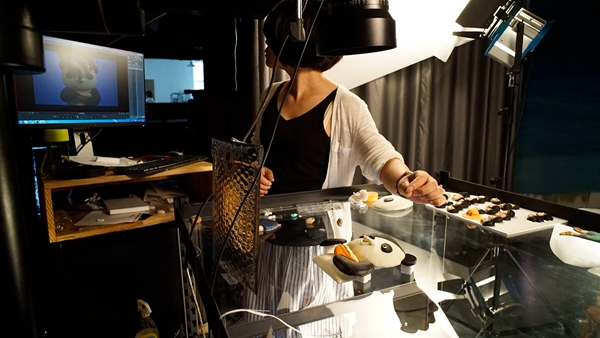Toying around
By Xing Wen | Updated: 2020-11-11 07:50

Stop-motion animation works provide a creative outlet for those who bring objects 'to life' on screen, Xing Wen reports.
Children and the young at heart often imagine their toys coming to life. At least, that's what animator Xu Ning believes. Part of it may be replicating the joy of childhood in later life. Part of it may also be maintaining a youthful outlook. But part of it is definitely redeeming a sense of creativity and wonder in adulthood.
As the son of a radio technician, Xu, 34, showed his manual dexterity from a very young age as he used screwdrivers, pincers, electric soldering irons and other tools to assemble or make mechanical toys and knead clay into the shape of animals.
He loved building toys out of metal, wood or other hardware, hoping that one day these "playmates "would come alive.
In 2006, Xu, a high school student, watched celebrated American filmmaker Tim Burton's stop-motion animated musical fantasy film, Corpse Bride. He was hooked. The old-school art of animating objects by moving them in small increments between individual photographic frames gave him a sense of creativity and allowed his toys to move.
"That's how it's going to work, to bring my toys to life," he realized and decided to further study the art form. The next year, he enrolled in the Animation School of Beijing Film Academy, where he had hands-on experience in puppet building for stop-motion animation. Later, in 2012, he applied for a master's program in the School of Cinematic Arts at the University of Southern California.
Three years later, after graduation, Xu was hired by Laika Entertainment, an animation studio in the United States with a reputation for making hit stop-motion feature films and, fittingly, the producer of Corpse Bride. He was soon recognized as the renowned studio's first Chinese animator and was involved in the production of Kubo and the Two Strings, Missing Link and other widely-known stop-motion feature films.
"Frankly, before I actually got to know about the medium, I kind of worried about my career prospects," says Xu. "However, after I had more insight into it, I saw its unique charms."
He says the real materials, people's hands-on involvement and the change of natural light and shade mean that stop-motion animation constantly requires an artistic touch-something that might explain why it is frequently showcased at art or film festivals.
Wang Xiyi, 30, also started his career in the stop-motion animation industry as he loves handcrafting.
The graduate from Jiangnan University is now working as the leader for the prop-making team at Steam-Arts, a stop-motion animation studio in Hangzhou, Zhejiang province.
"It gives us a great sense of achievement, setting up miniature scenes and making figurines with our hands," says Wang.
























